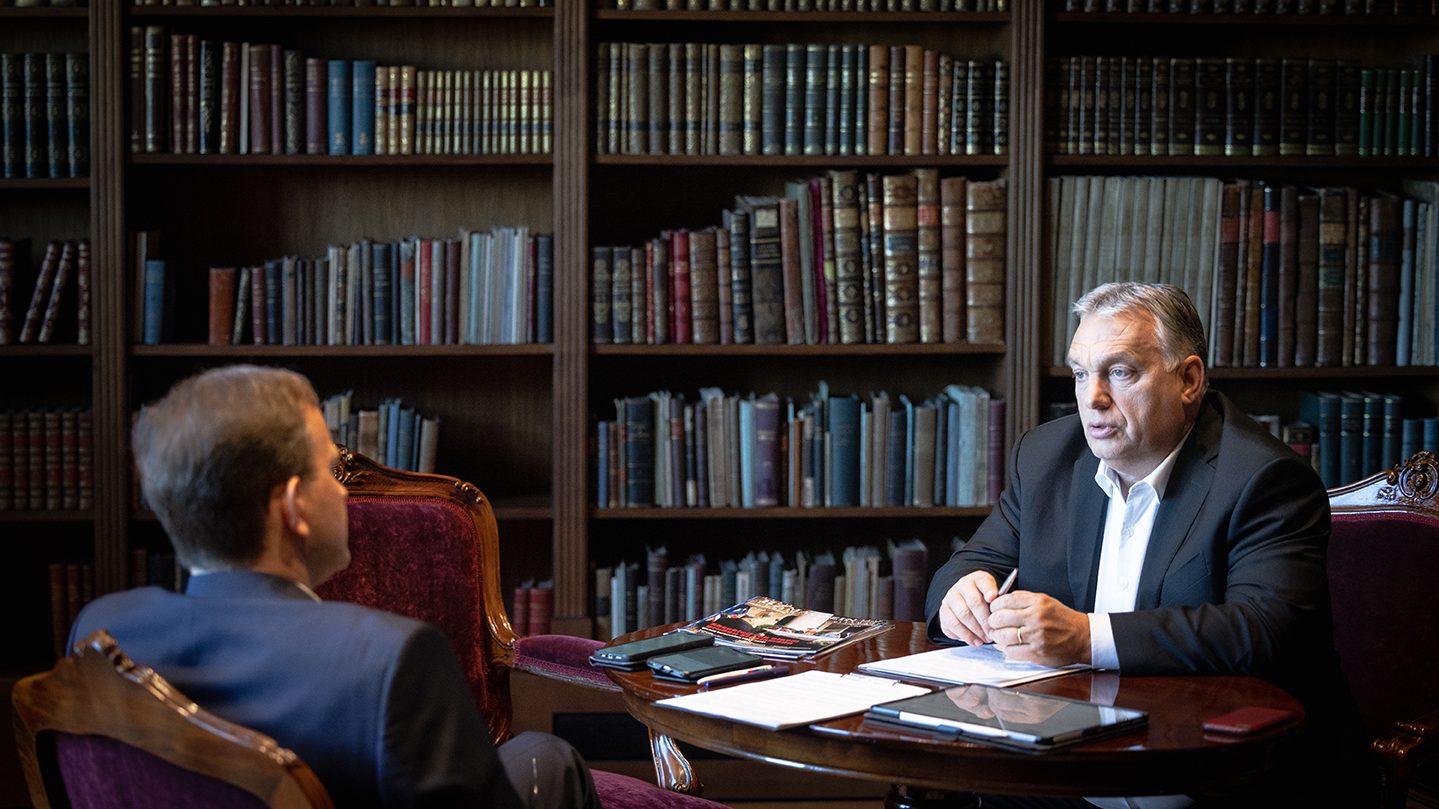
"We will comply with the European Commission’s requests, but ever further requests will be forthcoming," according to the Prime Minister.Continue reading
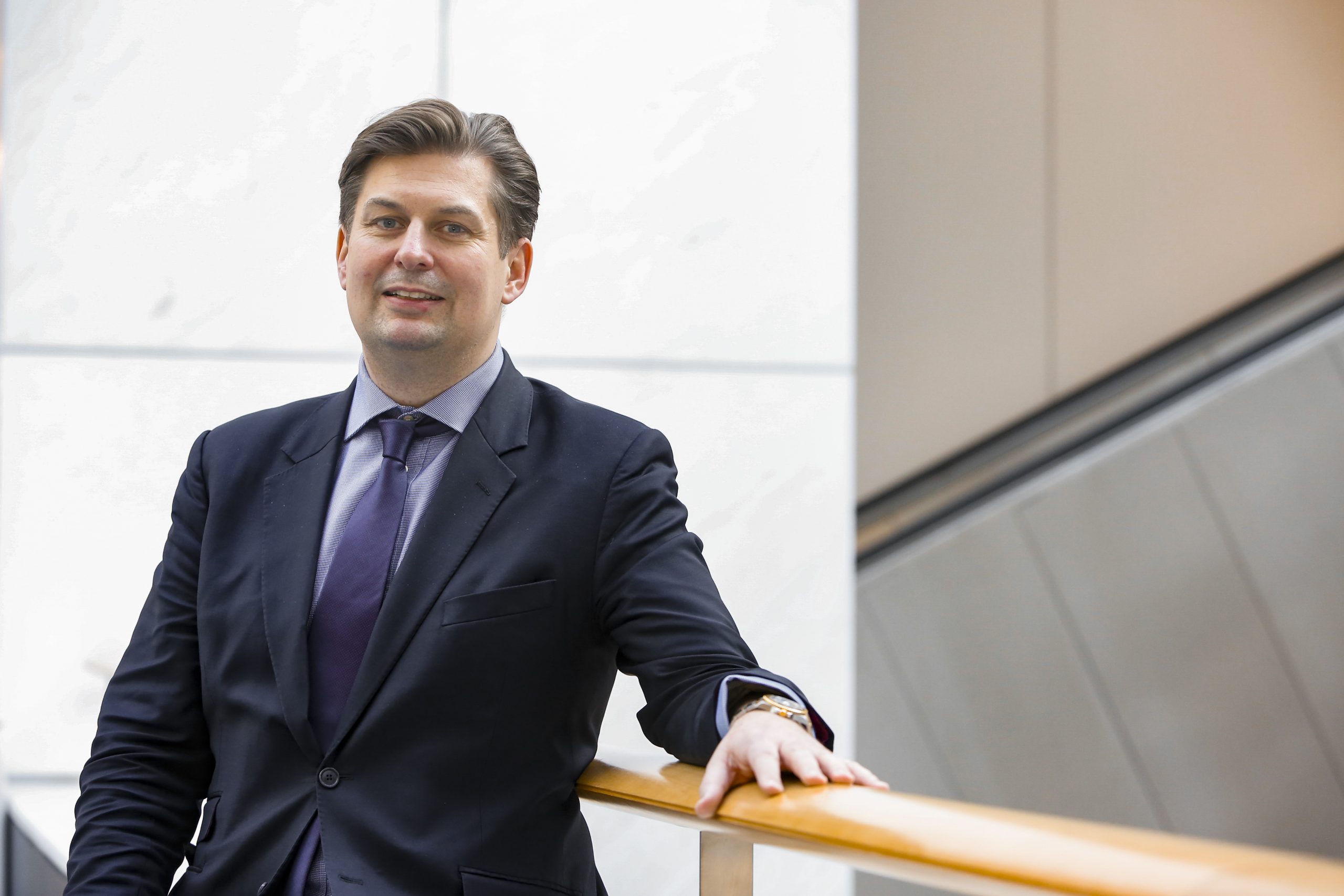
According to Maximilian Krah, today’s Germany is both united and divided, and his party will inevitably become increasingly important in German politics. We asked the MEP of the Alternative for Germany (AfD) about the war in Ukraine and German-Hungarian relations.
In a recent interview, Viktor Orbán’s political director said that in German politics, there is a center, and within its framework, there is ideological fluidity, the parties can cooperate with each other, but those who are outside of this center are basically outcasts. Why is that so?
The situation is even worse because there are no cooperation limits on the left. This means that the extreme left can become part of coalitions at the state level and does not face any violations of their parliamentary rights on the federal level. When it comes to the AfD, the unified block of all other parties deny us even fundamental parliamentary rights on the federal level. There are several reasons for this. One is that the other parties are hostile to any competitor because this means competition for jobs and money, but there are also political reasons. The German political mainstream turned to the left during the Merkel era so that an alternative approach to this left-wing dominance is not just seen as a new political option but as a fundamental attack.
Is a rearrangement possible in German politics?
Although the situation is bad, I think that changes are possible. To be even more optimistic, I think changes are inevitable. If there is something you can rely on with the Christian Democrats (the CDU/CSU party alliance – editor), it is their opportunism. Meanwhile, the AfD is the strongest political force in East Germany. This means that the Christian Democrats are being pushed back to their historical strongholds along the River Rhine. If they continue to implement the cordon sanitaire politics, they will have no other option than to serve as the junior partner of left-wing coalitions and follow their ideological agenda. Clearly, this will continue to weaken them.
The other reason I have for optimism is the failure of the left-wing agenda. For the first time in its post-war history, Germany has a negative trade balance. Energy prices are now increasing by a factor of four and we are not sure if our industry can survive. Such an economic decline always leads to political changes.
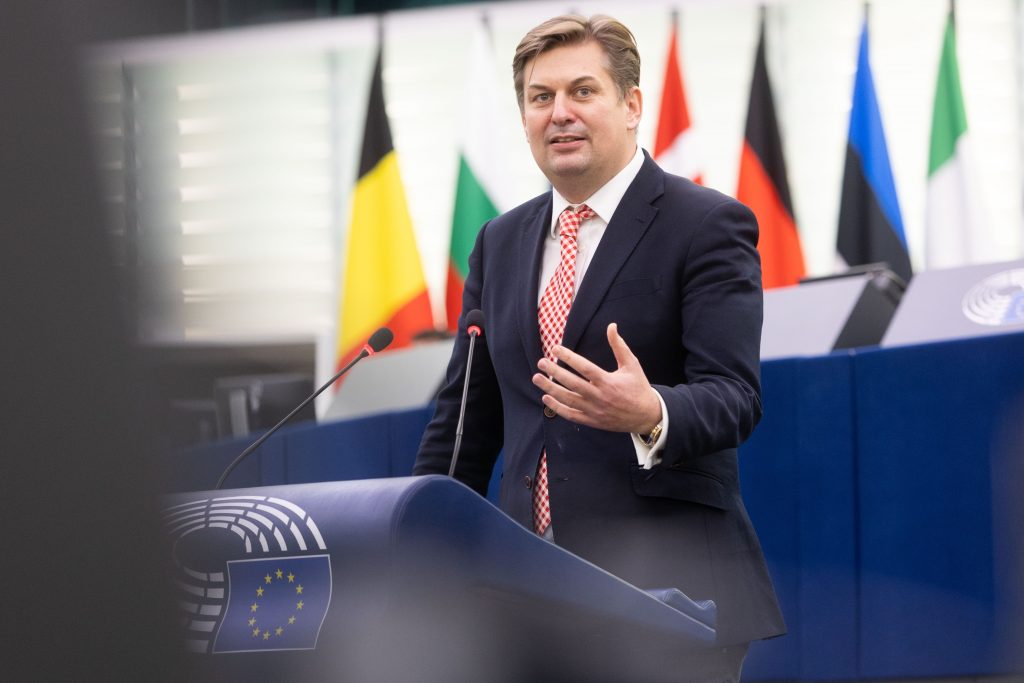
What is your party doing to break the cordon sanitaire? Is it possible to start with alliances locally or would only a total rearrangement change the status quo?
On the one hand, we need to improve and become more professional. The AfD was burdened with too many internal conflicts in the first years of its existence. This is perhaps typical of new parties, but the problem is finally being addressed with the election of a new executive board this past summer. In addition, the AfD has developed clearer positions regarding all of the problems Germany is facing. For instance, we clearly oppose the sanctions which hurt Germany more than they hurt Russia. We are the single major political force calling for peace negotiations instead of the escalation spiral we see on the Ukrainian front. And we are the ones addressing the social consequences of a left-wing agenda that leads to the deindustrialization of the country.
Our party is gaining momentum which you can observe in the polls, especially in East Germany. This is an argument for the Christian Democrats to look for at least some informal understanding with us. We will continue along this path, and since the crisis will likely deepen, we expect that the pressure on the Christian Democrats will increase as well.
Viktor Orbán said in a recent interview that from Fidesz’s point of view, the CDU is already a left-wing party. Has Friedrich Merz failed to give a new, more conservative direction to his party that many hoped he would? Did he even try?
Friedrich Merz was always a fake. The only asset he has is an outer appearance of conservatism. If you look back to 2002 and you analyze his defeat against Angela Merkel, you can see why he is failing again. He is just not someone who is willing to fight. He expects everything to be given to him, but he is not so brilliant that this should be the case. We see this in his first two attempts to take over the CDU in which he failed against truly less talented competitors. If you look at his biography, Merz is not conservative. You are not conservative if you leave politics and sell your address book to a company like Black Rock, allowing them to buy their way into nearly all of German industry.
I never expected Friedrich Merz to stand for more than himself. If I look at his policies after taking over from Merkel, I do not recognize anything that made the CDU more conservative.
The only thing he has managed to achieve is a more West German style of politics, that is, a style of politics that is much more congruent with the Federal Republic of Germany as it existed up to 1989. Whereas Merkel at least attempted a more balanced foreign policy, Merz is a clear advocate of being a vassal to NATO and to the United States, of not even trying to understand Eastern Europe, and of maintaining some constructive relations with Russia and even China. That said, I consider Merz a failure in every respect and we will see how long his only asset – his conservative appearance – will save the CDU from being found out for what it is: a left-wing party.
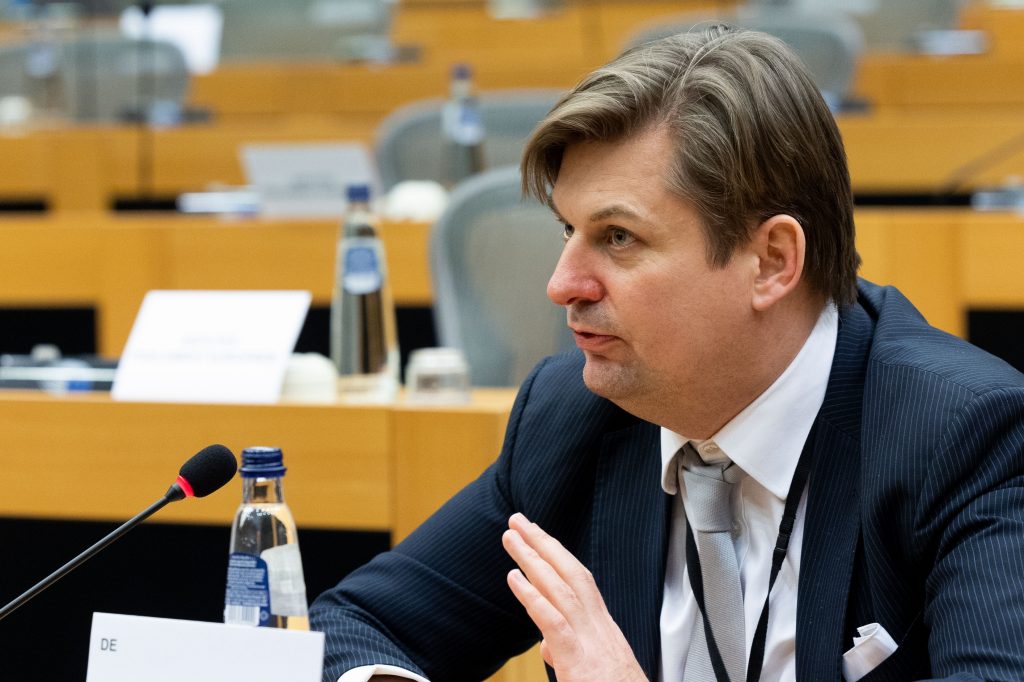
What is the situation with the CDU’s Bavarian sister party, the CSU ideologically?
The CSU is a regional phenomenon because it is deeply rooted in Bavarian society. The CSU always showed remarkable ideological flexibility which you can see in Markus Söder, the Prime Minister himself, who was one of the most forceful proponents of Covid measures and who now declares that Covid is a kind of flu. The main asset of the CSU is that it is seen as part of the Bavarian character, but I personally believe that times of crisis bring this kind of populism to an end. People expect clear and foreseeable solutions. But I expect that the CSU in Bavaria will remain the strongest party with the best connections to the state authorities and industry.
According to Viktor Orbán, his party’s relations with the AfD must be sacrificed for good interstate relations. Cooperation with Germany and German investment in Hungary is crucial for the Hungarian economy. If Fidesz cooperated with the AfD, would the German media and politics put pressure on German companies such as Audi and Mercedes to quit Hungary?
We understand Prime Minister Orbán’s worries, but we are self-confident enough to say that sooner or later he will have cause to relinquish these concerns and see that we are the future. While no one knows what Germany or Europe will look like in ten or twenty years, we do know for sure that the left-liberal “woke” politics currently beloved by the German mainstream will lead to poverty, repression, and deep crisis. Since the AfD is the only opposition force to this political program, we will continue to grow. We will also win new allies who are already with us ideologically but who think it would be dangerous to show it at this point because of the cordon sanitaire.
So if there would now be official cooperation with the AfD, it would definitely lead to some outcry in the press and some critical questions from the large German industries with close government ties. I do not think that this would lead to a decrease in investment or severe economic consequences, but I am even more convinced that this situation will change in the next six months. We will see that pressure from the “woksters” in Brussels and Berlin on Hungary will actually increase, and that the crisis for German industry will deepen. The only logical thing for Hungary to do at that point will be to establish ties with us. There will be more understanding and acceptance of this.
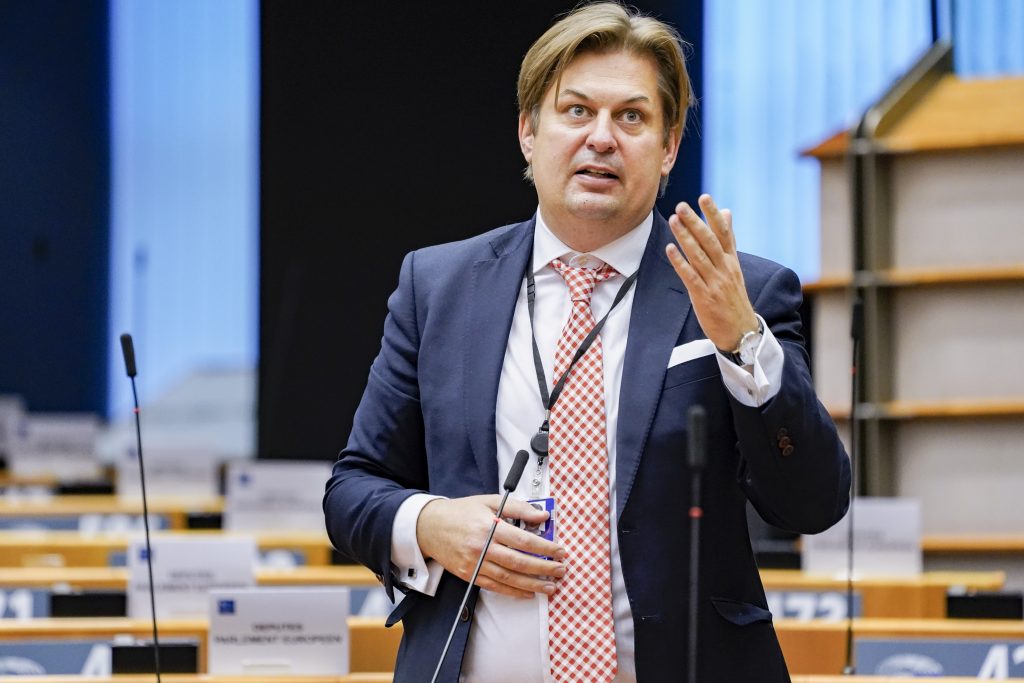
What kind of cooperation would you see as favorable for the parties in your party family, the Identity and Democracy, the European Conservatives and Reformists (ECR), and of course, Fidesz?
Together with the Greens, the ECR is the most outspoken political force here in the European parliament when it comes to an escalation of the war with Russia. In terms of foreign policy, especially with the evaluation of the Ukrainian conflict, it seems to me that Fidesz and the ECR, together with the Greens, are the most opposite positions we see. As long as this conflict is dominating European politics, it is quite unlikely that cooperation can emerge that is more than some technical alliance when it comes to posts and resources. I also expect that this conflict will continue even after a ceasefire is established because we then need to discuss the future of the sanctions.
The mainstream, which is led by the Greens and which is unfortunately followed by ECR, is supporting the massive sanctions and even championing a widening of the sanctions against everyone who doesn’t follow the Western agenda. They are now focused on Russia but are already targeting China. This policy of sanctions destroys the whole world trade order and undermines trust in the rules of trade, destroying supply chains, leading the global south to build up their own instruments for trade and their economies.
Fidesz and the AfD oppose the politicization of trade and the destruction of the current trade order. The ECR, however, supports it. It is hard to imagine this contrary political position in one of the major issues united in one group. That said, I expect the political right to organize into two camps in which the one camp follows an agenda of a new cold war supporting US hegemony and unipolar world order, while the other camp will look for some kind of strategic autonomy for Europe within the framework of a more multipolar world order. In this multipolar world, Europe will, of course always have special relations with the US due to our common culture and history, but it will be able to adopt its own stand if it is not convinced that US interests are congruent with European interests.
In a recent statement, your party offered a dialogue to Viktor Orbán and supported his policy of calling for a ceasefire and peace talks in the Ukraine war. Why do you think this position is in a minority in Western politics?
The war in Ukraine reveals several underlying tendencies in European countries and the remaining division between East and West. The first aspect one clearly sees is the enormous soft power of the liberal parts of the United States. We as conservatives like to look to the strong conservative movement there represented by Tucker Carlson and Fox News and the Republican strongholds in the Midwest, but we should never forget that the part of America that interacts with the rest of the world is Silicone Valley, Hollywood, Wallstreet, and the Ivy Leagues together with the political elites in Washington who are not conservative at all.
What we are confronted with is a secular version of the evangelical missionary spirit that the shining city on the hill is obliged to spread its version of justice to all ends of the earth.
What we also see is that underlying historical experiences with the Russians are now resurfacing. You see it now in Poland, where being not just skeptical but actually hostile to the Russians seems to be a part of the national character. One sees it also in the differences between East and West Germany. While East Germany was occupied by the Russians with Soviet Troops in the country up to 1992, the East Germans are quite pro-Russian. West Germany has internalized some anti-Russian prejudices which, to my mind, were set in motion during the Nazi era to gain support for the war with Russia and continued on into the Cold War. After decades of Western propaganda portraying Russia as an evil empire, it is now easy to utilize the old stereotypes for the current campaign.
People are not rational actors on these topics but rather guided by emotions triggered by the media and US soft power in combination with the underlying prejudices.
No one talks about the war in Ukraine as a multidimensional conflict about which one can offer many arguments. Instead, what we have now is a perception of the war in Ukraine as a conflict between good and evil and that whoever does not support the war is a supporter of evil. If people understand that this war is not a question of morals but a question of interests and that a long war is hurting us more than a short war, the political debate would take on a different style and direction.
According to polls, the majority of Germans think the sanctions do more harm to Germany than to Russia, but still, the majority supports them. At least in the West, because Eastern German, and particularly your voters are very much against the sanctions. What explains the divisions?
This debate is indeed quite interesting because it shows the division between the two parts. Aside from the reasons I gave you already, I would like to direct your focus to an issue that is still extremely important in Germany: the history of National Socialism and its horrendous crimes. For East Germany, Stalin famously said, “Hitlers come and go, but the German nation will remain.” Later, the Russians received the worst reparations ever in the history of the world economy and established a Communist regime that was rejected by the vast majority of East Germans. The Communists in East Germany never propagated the notion that the German nation as a whole or that German culture is somehow responsible for the crimes of National Socialism. National Socialism was seen as an exception in the history of Germany that did not impact the value of German art, music, and culture.
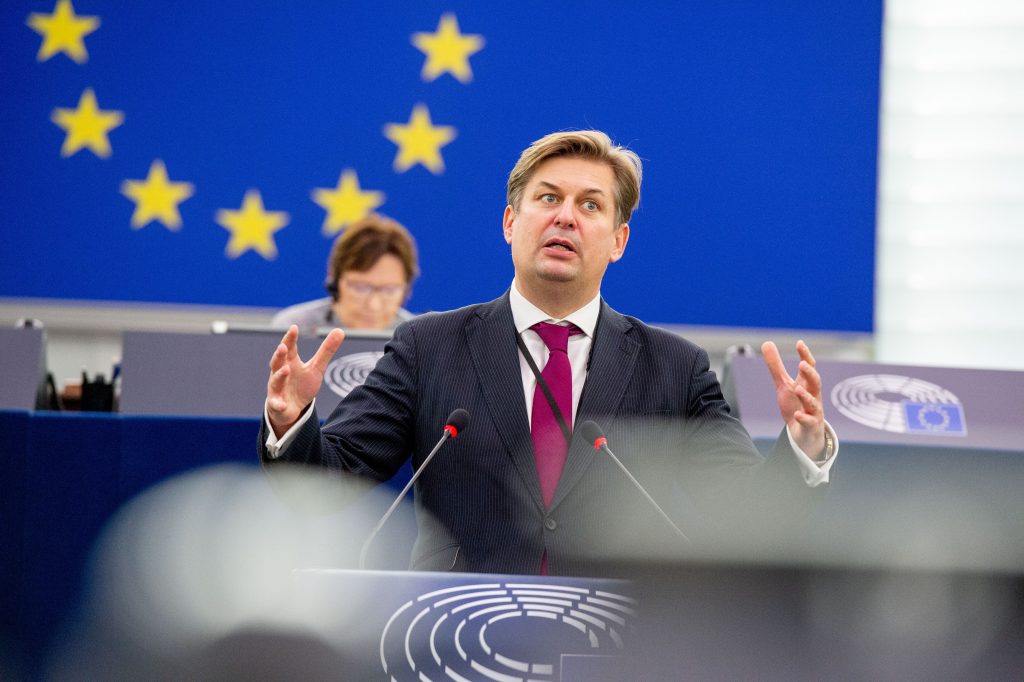
In West Germany, the situation was a bit different. There was the Cold War and the message the victorious Western powers gave was “You fought against the Russians under Hitler, you can fight against the Russians now.” This was a sign that not everything the Germans had done was wrong. This created a link to the NS time and made it difficult for the Germans to cleanse themselves of their sins so that the students who took part in the revolts in 1968 were not entirely wrong when they claimed that the Germans of the 50s and 60s had never really broken with some of the National Socialist traditions. They instilled this idea that the entirety of the German nation – its culture, its art, its music – is infected with National Socialism. For them, all of German history leading up to 1933 is the overture and the 12 years of National Socialism is the true Germany. Everything after 1945 then becomes penance.
West German left-wing intellectuals are obsessed with National Socialism. As a consequence, schools, universities, and theaters teach self-hate instead of patriotism. Russia, from this standpoint, seems to be a kind of antithesis. It is a nation that rebuilt itself after the Communist era and is looking to re-legitimize itself using its history and tradition combining the Orthodox faith together with Stalin’s victory to find a context for its patriotism and national pride. For this reason, Russia embodies everything that a left-wing self-hating West German hates whilst an East German, who is happy to be back in history and happy to be back in a united Germany and who suffers from the West German denial of Germanhood, has a tendency to embrace the Russian way and a desire to embrace at least a part of it.
Right now we see a Germany that is more divided than at any time since reunification.
On the other hand, we see that the economic crisis we are headed toward will bring with it many new worries and problems. This is an opportunity to find common ground again. People in the East and West face the same problems regarding heating their apartments, filling their refrigerators, and saving their jobs over the winter. These very practical challenges can also bring a new wave of unity to the country. But this crisis makes it increasingly obvious that West Germany has taken a cultural turn after WWII that has distanced it from what is widely understood as Germanhood, that is German tradition and German culture.
Photos via the European Parliament